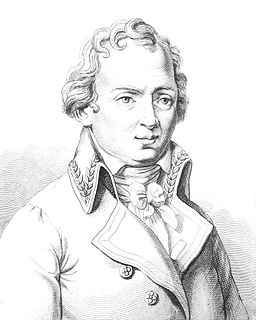A Quote by Jules Verne
The colonists had no library at their disposal; but the engineer was a book which was always at hand, always open at the page which one wanted, a book which answered all their questions, and which they often consulted.
Related Quotes
I feel very strongly that I am under the influence of things or questions which were left incomplete and unanswered by my parents and grandparents and more distant ancestors. It often seems as if there were an impersonal karma within a family which is passed on from parents to children. It has always seemed to me that I had to answer questions which fate had posed to my forefathers, and which had not yet been answered, or as if I had to complete, or perhaps continue, things which previous ages had left unfinished.
You will want a book which contains not man's thoughts, but God's - not a book that may amuse you, but a book that can save you - not even a book that can instruct you, but a book on which you can venture an eternity - not only a book which can give relief to your spirit, but redemption to your soul - a book which contains salvation, and conveys it to you, one which shall at once be the Saviour's book and the sinner's.
As parents, we should remember that our lives may be the book from the family library which the children most treasure. Are our examples worthy of emulation? Do we live in such a way that a son or a daughter may say, ‘I want to follow my dad,’ or ‘I want to be like my mother’? Unlike the book on the library shelf, the covers of which shield its contents, our lives cannot be closed. Parents, we truly are an open book in the library of learning of our homes.
The book known by the name of the Apocalypse, has seemed to be until now unintelligible, merely because people persisted to see in it a real prediction of the future, which every one has explained after his own fashion, and in which they have always found what they wanted, namely anything but that, what the book contained.
He is no true reader who has not experienced the reproachful fascination of the great shelves of unread books, of the libraries at night of which Borges is the fabulist. He is no reader who has not heard, in his inward ear, the call of the hundreds of thousands, of the millions of volumes which stand in the stacks of the British Library asking to be read. For there is in each book a gamble against oblivion, a wager against silence, which can be won only when the book is opened again (but in contrast to man, the book can wait centuries for the hazard of resurrection.)
I grew up in the Southwest Bronx. Father an accountant, mother a schoolteacher. Brother was six years older, which explains why I gobbled crystal meth at 12, smoked hashish at 13, and was shooting smack at 17, which explains how I got Hepatitis C, which was the basis of my first book, which was a humor book about dying.
In urging all writers to be steadfast in reliance on the ultimate victory of excellence, we should no less strenuously urge upon them to beware of the intemperate arrogance which attributes failure to a degraded condition of the public mind. The instinct which leads the world to worship success is not dangerous. The book which succeeds accomplishes its aim. The book which fails may have many excellencies, but they must have been misdirected.
['John F. Kennedy] movie is based on a massive best-selling book, which is always helpful. And then the script was amazing and answered my question, "Why this? Why now?" And the "why now" is that it's 50 years since the assassination, and the country needs to have and will have a conversation about that. And the "why this" is the construct, which I think is sort of ingenious.







































